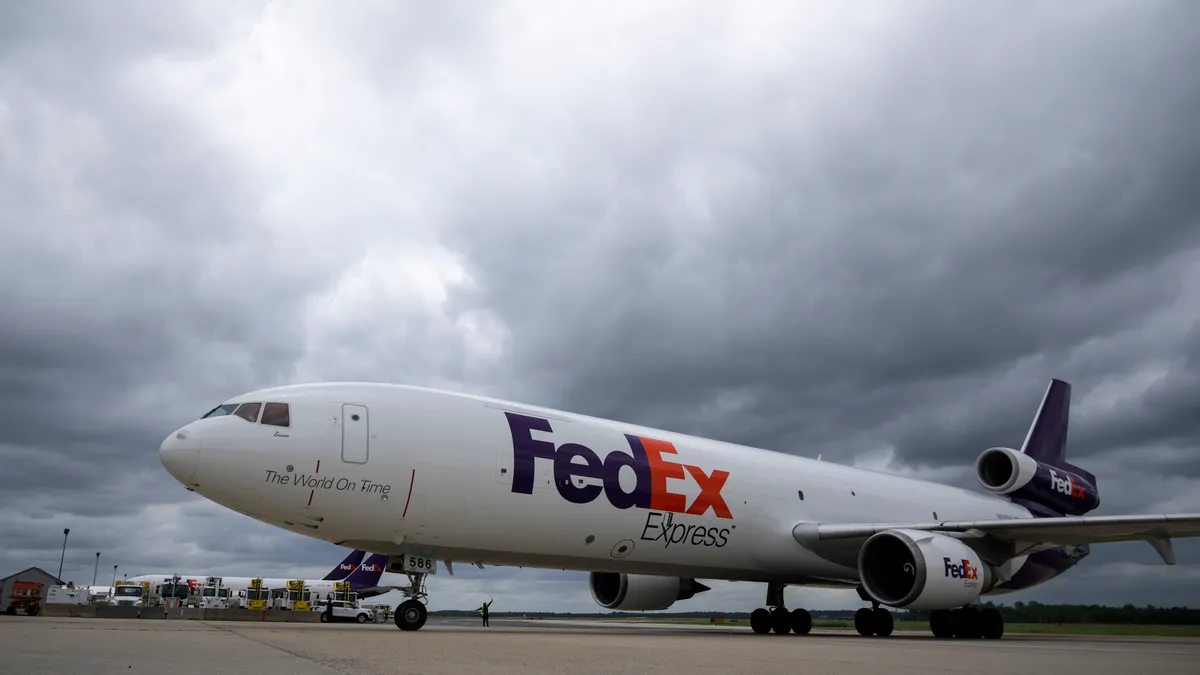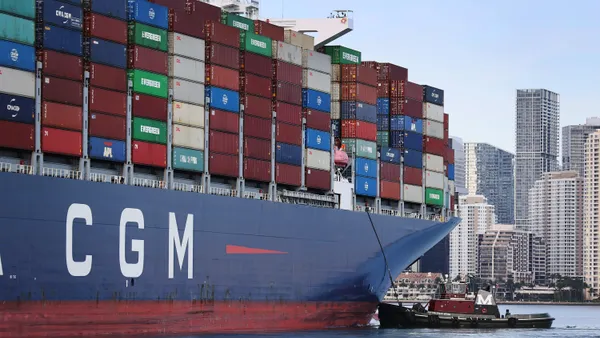FedEx is cutting flights, trimming labor hours and canceling network capacity projects to cushion the expected blow of reduced demand for the next several quarters, the company said in a business update Thursday.
Global volumes “significantly worsened” late in FedEx's first quarter, which ended Aug. 31, President and CEO Raj Subramaniam said in the update. FedEx expects business conditions to continue to weaken in the second quarter, and it has withdrawn its earnings forecast for the remainder of its fiscal year.
FedEx Express, the company's time-definite delivery segment that uses cargo aircraft, was especially affected "by macroeconomic weakness in Asia and service challenges in Europe," according to the update. Air cargo carriers have faced months of declining volumes and rates, and Express revenue came in $500 million below FedEx’s forecasts.
The quarterly revenue of FedEx Ground, which provides day-definite shipping in the U.S. and Canada, was $8.2 billion, about $300 million below forecasts. The unit is facing a slowdown in home delivery demand and navigating tensions with contractors it uses for pickup and delivery services.
“While this performance is disappointing, we are aggressively accelerating cost reduction efforts and evaluating additional measures to enhance productivity, reduce variable costs, and implement structural cost-reduction initiatives," Subramaniam said in a statement.
According to the update, FedEx's measures to improve its financial health are as follows:
- Reduction in flight frequencies and temporarily parking aircraft
- Volume-related reductions in labor hours and other linehaul expenses
- Consolidation of certain sort operations to drive productivity
- Reduction of Sunday operations at a number of FedEx Ground locations
- Cancellation of certain planned network capacity and other projects
- Deferral of staff hiring
- Closure of over 90 FedEx Office locations
- Identification of five corporate office facilities to be closed, with additional real estate rationalization planning under way
FedEx and other parcel carriers reaped the benefits of a surge in delivery demand in 2020 and 2021, driven by the COVID-19 pandemic. Shipping costs climbed as carriers implemented larger rate hikes and various surcharges in a period of limited capacity.
Demand has cooled off this year, and Subramaniam said on a June earnings call that the company is going to boost its bottom line by pursuing more profitable shipments and greater operational efficiencies. One major component of this strategy is "Network 2.0", in which the separate operating companies of FedEx Express, Ground and Freight will intermingle more frequently.
Rival UPS is also focusing on higher-yielding shipments as demand slows, but FedEx is losing business more due to "poor execution and bad strategy" rather than economic challenges, Dean Maciuba, managing partner, United States, for Crossroads Parcel Consulting, wrote in a LinkedIn post about FedEx's business update.
"For years, my parcel shipping clients have been telling me that the FedEx service experience has been in decline, that UPS is easier to work with, and as a result, they are moving more business to UPS," Maciuba wrote.
FedEx said it would provide further details on its cost-cutting efforts and outlook during its earnings call Sept. 22.














